Mallard, Manitoba is so small that even Google doesn’t know much about it. A search for images of the town yields a flock (a sord?) of mallard duck photos and exactly three photos from the community: the “Welcome to Mallard” road sign, what looks like a community center, and a black and white historical photo of Mallard School.
It’s here, on the southeast shores of Waterhen Lake, four hours north of Winnipeg, that Brigette Lacquette grew up with her parents, older sister, younger brother, and the other 125-ish town residents.
“There were only houses there and a community hall, and then that was pretty much it.”
From such a small, remote place, Lacquette went on to become an Olympian, a professional scout, and a role model for Indigenous kids. How?
How else? Hockey.
When Lacquette and her siblings were young, their dad drove a school bus, and their mom commuted two-and-a-half hours each way for five years to earn her teaching degree and a better living. They’d married and started their family young at just 19 and 20 years old, so times were tight in the beginning.
It didn’t take long before the kids asked to play hockey. The nearest indoor rink was in Winnepegosis, almost an hour away.
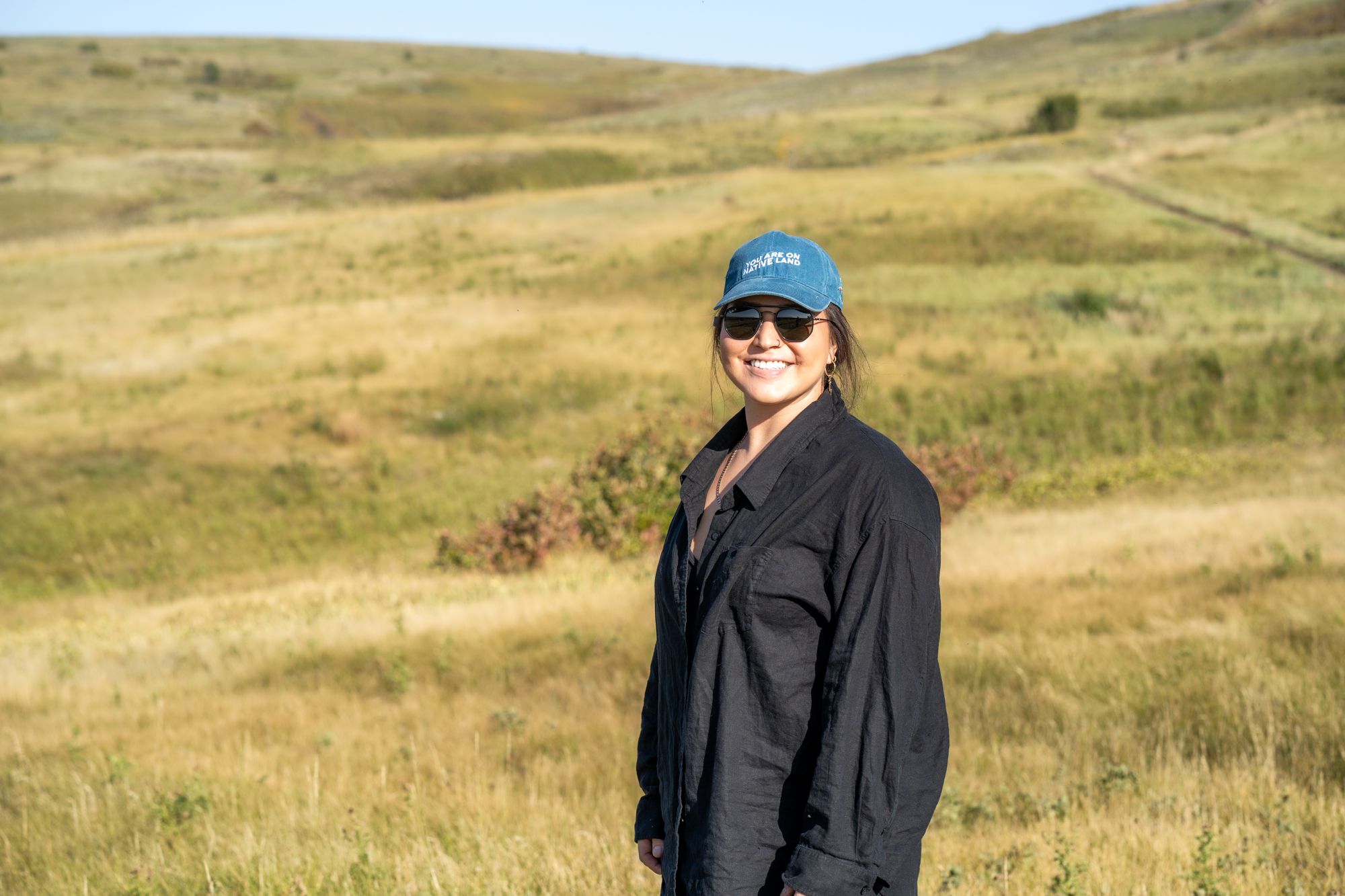
“I begged him to put me in hockey,” Lacquette says. “It was my escape. I dealt with a lot of anxiety. My safe space was the rink. I’d feel normal, forget everything else that was happening. I spent hours out there, stick-handling, shooting.”
Off the ice, she was reserved and quiet, anxious about trauma and not fitting in and everyone looking at her because of her eczema, an inflammatory skin condition that causes itching, rashes and scaly skin. On the ice, she felt comfortable, free to talk and have fun.
As she got older — 12 or so years old — she played on summer hockey teams and traveled to tournaments in Winnipeg and other cities. That’s when she encountered racism for the first time.
“A girl called me a dirty Indian. I didn’t know how to react. Obviously, I’m upset. It hurt. My family is close, and they were right behind to support me. They helped me turn that negative into a positive. ‘You just have to try harder and play harder and whatnot.’ I used it as fuel.”
“I got called every name in the book since then. That always made me want to prove everyone else wrong.”
Proving people wrong — that’s been a consistent motivating force for Lacquette. When her sister made a high-performance team and she didn’t, she again got the guidance she needed from her parents. They sat her down and told her to write down her goals. What did she want to achieve? Making a concrete list could help bring them to life.
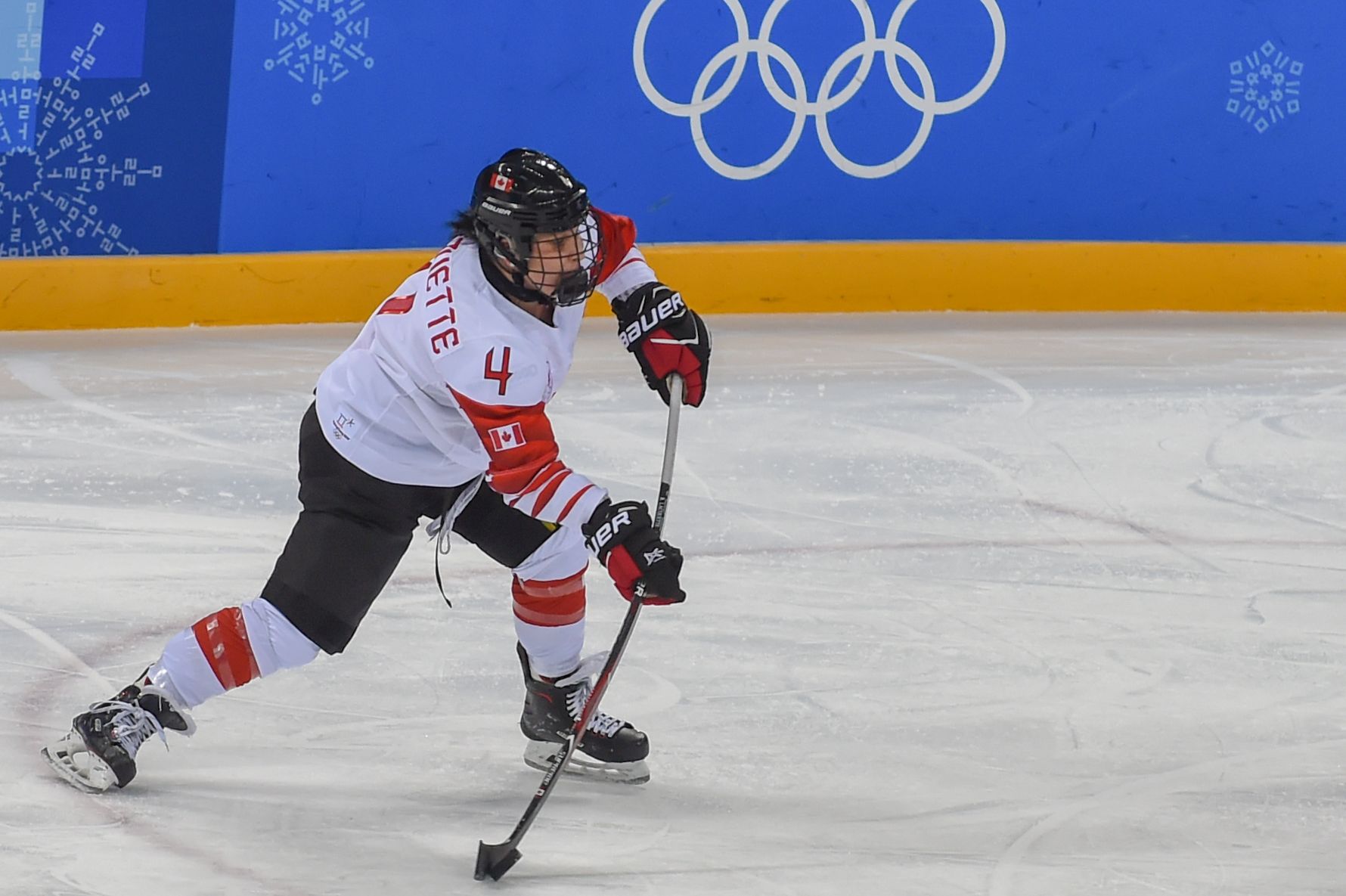
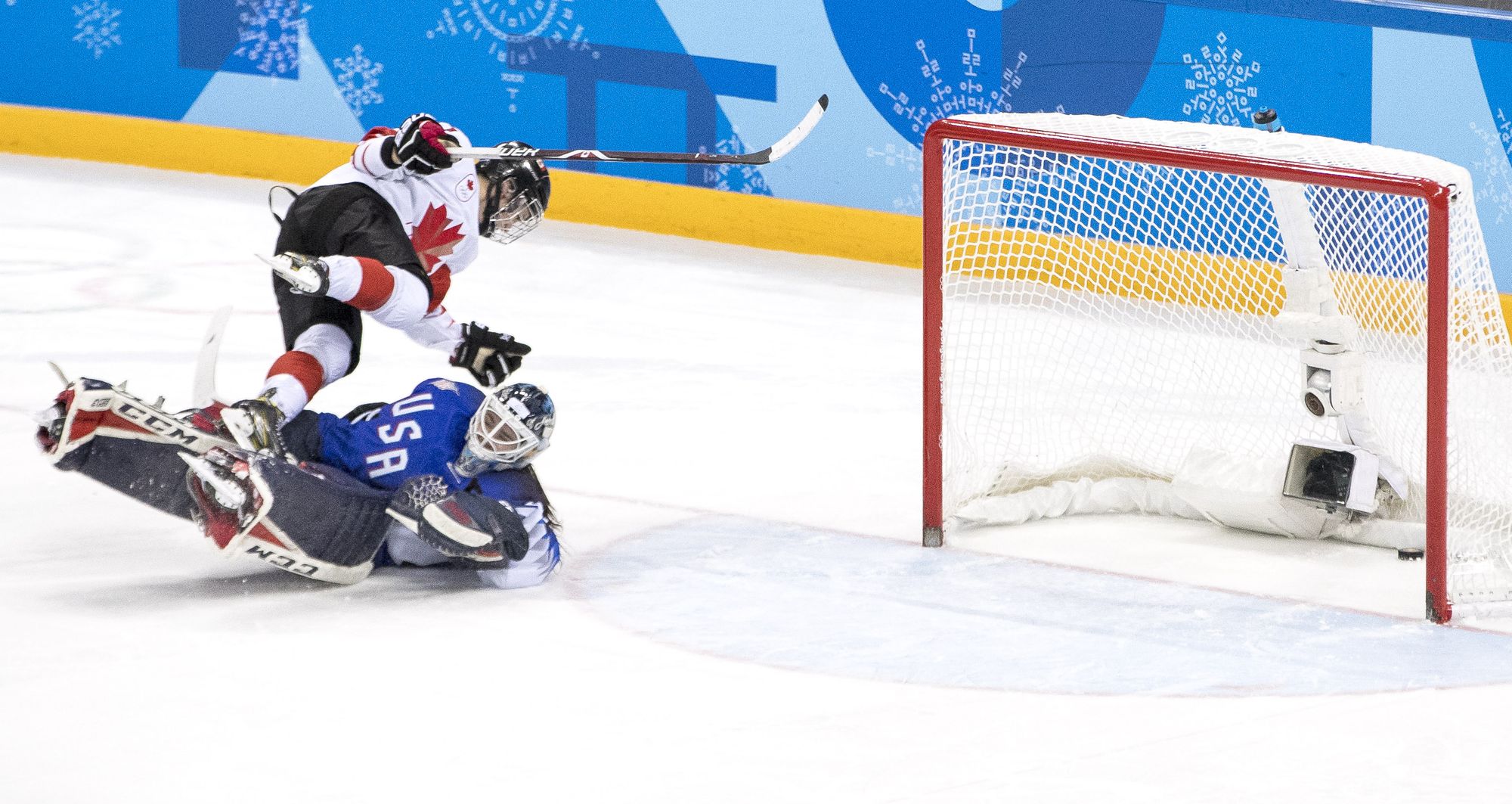
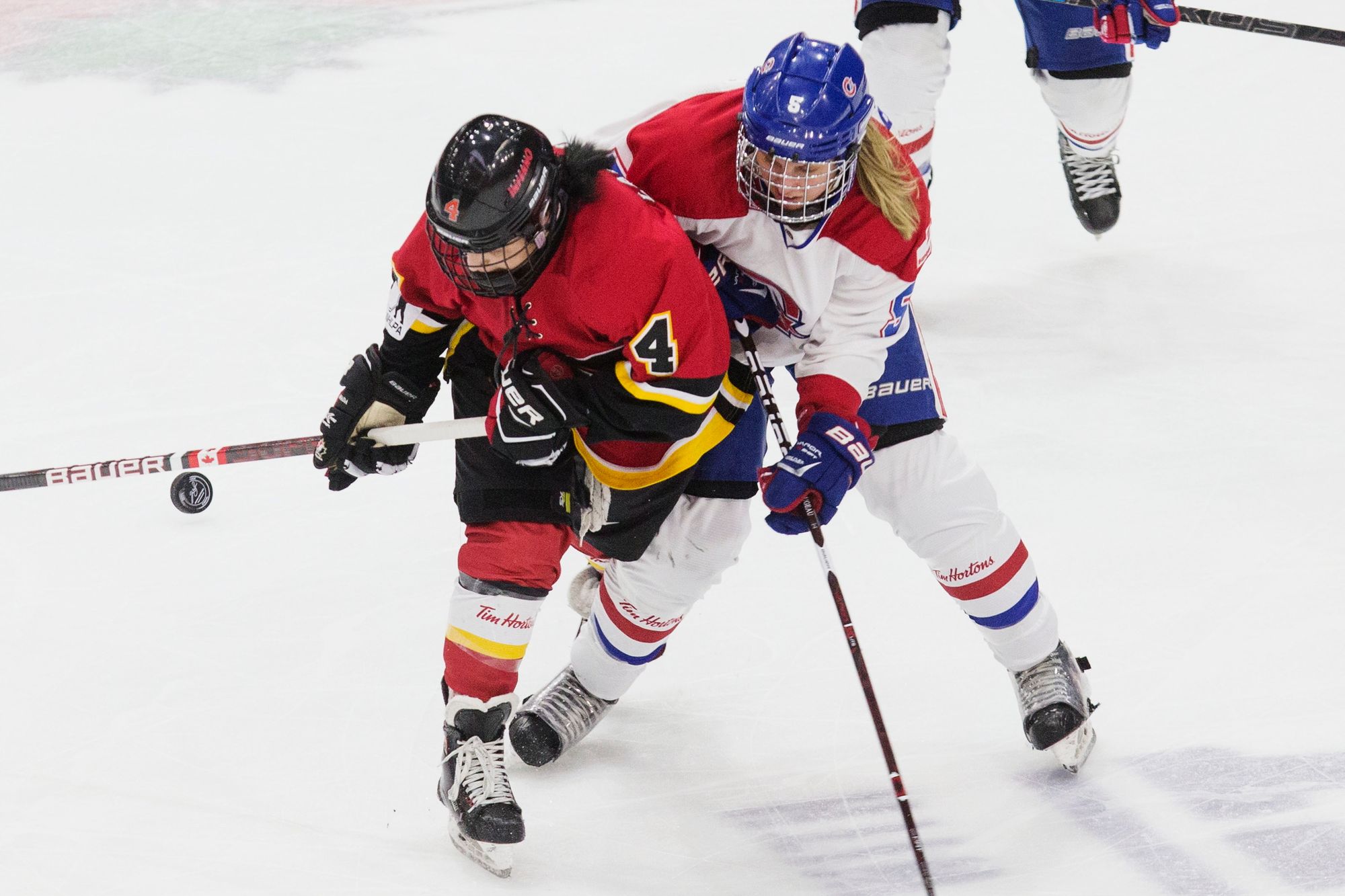
Brigette made her dreams come true by playing in the Olympics. She also played professionally. [AP photos]
This is what she wrote down:
- Go to school and finish grade 9 through high school
- Make Team Manitoba/Team Canada
- Get a scholarship to play college hockey in the U.S.
- Graduate from college
- Play in the Olympics
“At the time, it felt out of reach. My sister went, and I was stuck home in Mallard.”
She continued to train in her own way, stick-handling, shooting, rollerblading in the middle of nowhere. Soon, the momentum did shift.
When she was 15, she was invited to try out for Team Canada, and she made it. She joined the national U18 team in 2008, won silver at the 2009 IIHF U18 Women’s World Championships and won gold the following year.
It was all coming together. Next up on the goal list: college hockey in the States. Lacquette landed at the University of Minnesota-Duluth, where in 2011–12, she was the team’s second-leading scorer among defensemen and was named to the WCHA All-Rookie team.
She also discovered alcohol, a novelty of being away from home.
“I didn’t grow up in an alcoholic home. My parents have been sober my entire life.”
It started off as just dabbling, but then, as she puts it, she began to prioritize having a social life over being an elite athlete.
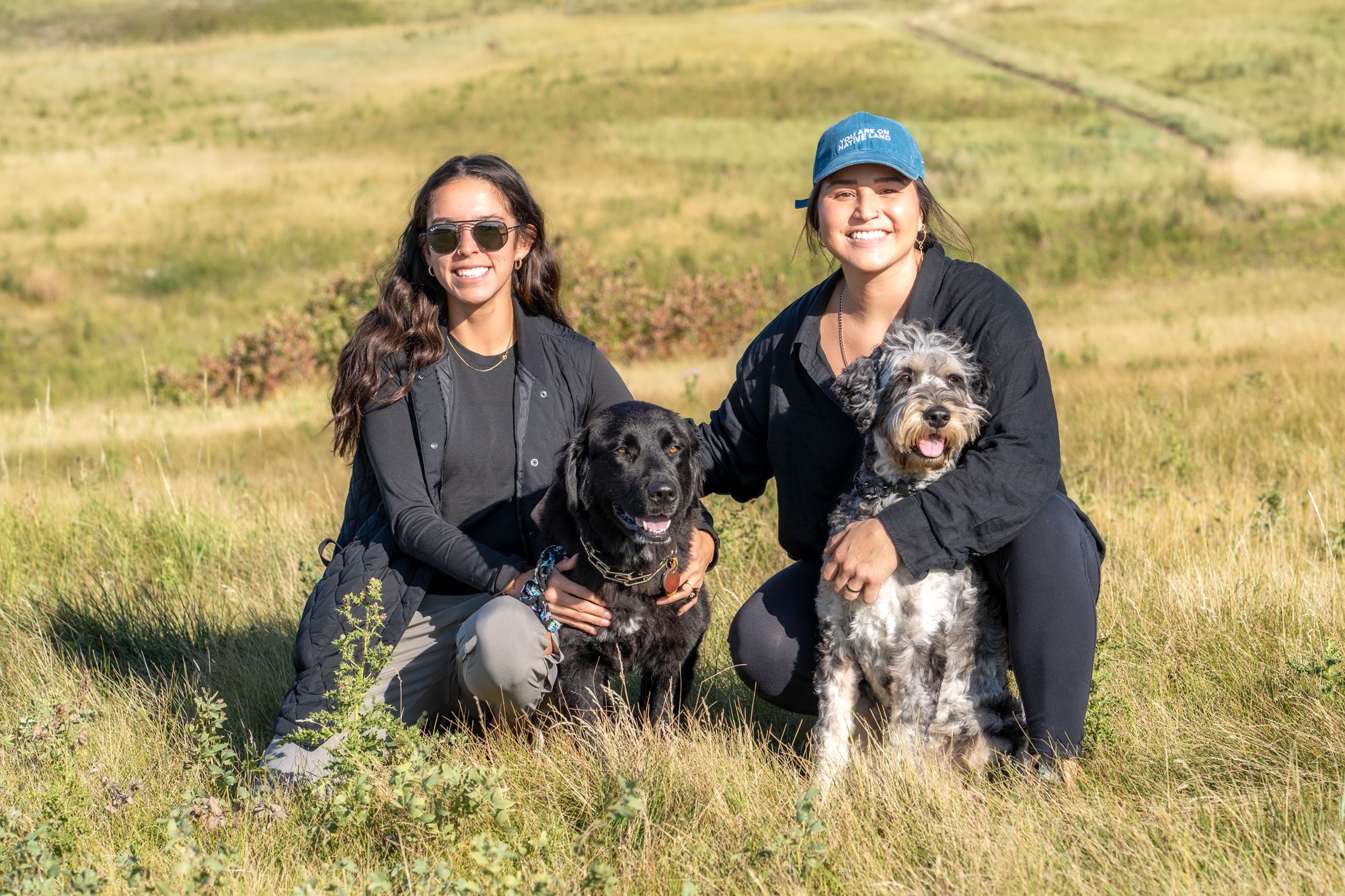
At first, it didn’t seem to hurt her performance on the ice. She played on the National Women’s Team at the 2013 Four Nations Cup and was invited to try out for the 2014 Olympic team — a chance to check off one more box from that list of childhood goals. She ended up being a late cut.
Looking back now, Lacquette knows what went wrong: “I showed up and thought I could rely on my skill. I was trying to figure out life on my own and not ask for help.”
For a while, she considered quitting hockey, asking herself, “What am I doing this for?” She didn’t quit. But after a couple of years, she did go in another direction.
On January 31, 2017, Lacquette made a decision that changed her life: she chose to stop drinking.
“I was becoming someone I wasn’t proud of. I wanted to be someone I could be proud of and someone my nieces and nephews could be proud of.”
It wasn’t easy to stop drinking, but the decision itself was a huge step. From there, she talked with a counselor, focused on her training, and kept away from social hangouts that could trigger trouble.
She finished college (check) and joined the Calgary Inferno of what was then the Canadian Women’s Hockey League. Lacquette and the Inferno won the 2015–16 Clarkson Cup and returned to the finals the following year.

She was sober and playing at a high level. The PyeongChang Games were possible, and this time, she was going to control the things she could control.
Not only did she make the 2018 Canadian Women’s Olympic hockey team, but she was the national team’s first-ever First Nations player.
Brigette Lacquette of tiny Mallard, Manitoba, of Cote First Nation, would be able to check off that final box of childhood goals. And though she aspired to be an Olympian, she hadn’t really envisioned being the first First Nations woman or what that might mean for younger girls.
“I watched NHL hockey players, like Jordin Tootoo and Jonathan Cheechoo, and I didn’t even think of it. Now that it’s me, and the last several years have been the way they have been, it’s awesome.”
Those years have included helping others, especially Indigenous kids, see themselves doing and achieving big things, just like she has. Surviving big things, too.
Lacquette had hoped for another Olympic run in 2022. In the spring of 2021, while waiting for news on whether she’d be centralized, she stumbled across a message on a Facebook page that her sister had made for her during the 2018 Games.
“This one guy said he worked for the Chicago Blackhawks. I Googled him and called him, and he’s like, ‘Your name came across my desk, and I wondered if you’d ever thought about scouting.’ He liked my hockey resume, and he’d already talked to people who used to coach me from Minnesota-Duluth.”
She was stunned. Scouting had never crossed her mind. But first things first. She said she’d give him an answer once she knew whether she’d made it to the next step for Olympic team tryouts.
Two days later, she had her answer: “I found out I got cut. Released. I took that very hard, a ‘what now’ kind of thing. But that Chicago door had opened, and I was like, ‘Wow, why not?’”
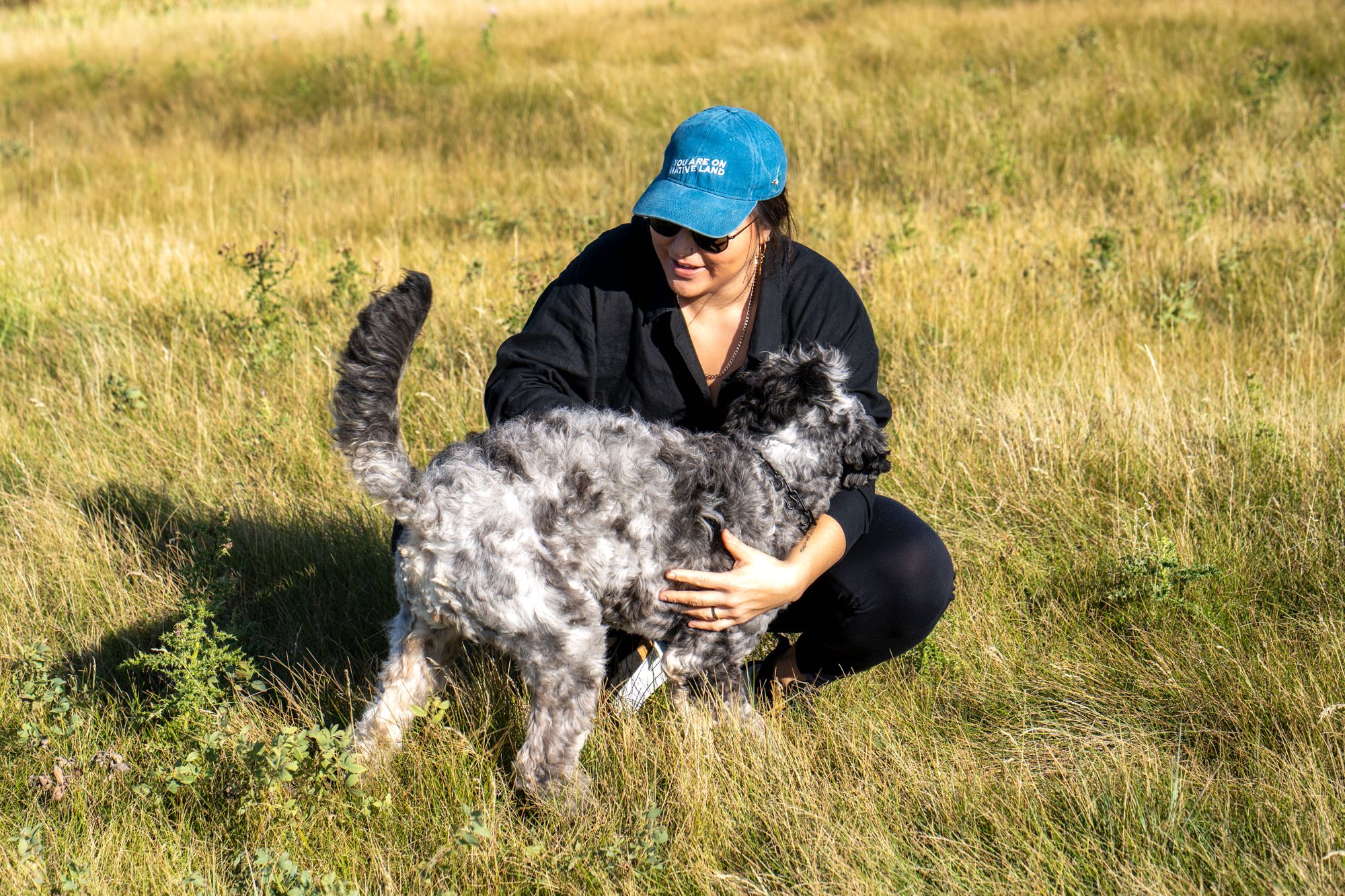
At first, she had no idea what she was doing but with time got the hang of the job. Though there were two other female NHL scouts at the time, Lacquette was typically the only woman scout at the games she attended and often the youngest.
Can you imagine how the dynamic played out sometimes?
One time, she arrived at the rink for a game and saw a group of guys she immediately identified as scouts. She approached to ask where the scouts’ room was, and one of the men turned around and in a thick East Coast accent said, “Oh, are you going to bring a pizza out?”
She told him she wasn’t a rink employee and walked off.
“Later on, I introduced myself to him and told him I worked for Chicago. He tried to dig himself out, ‘Oh, I’m so sorry, I apologize,’ but there’s no excuse for that.
“It’s a reflection of him. It’s funny, but it’s not. You laugh because you can’t believe it happened. And now it’s like, ‘Sorry buddy, but you’re my story — the learning experience.’”
It’s better now. Now people are introducing themselves to her. Plus, she likes watching hockey, so it doesn’t feel like work.
The job helped her manage the blow of missing the 2022 Games, but she was still struggling.
“After I got cut, after I quit drinking, I thought I was good. But I didn’t really put the work in on myself. I thought I was OK, but I wasn’t. I felt so off, lost, depressed.”
She reached out to her doctor and asked for help. A psychiatrist diagnosed ADHD and a trace of borderline personality disorder rooted in childhood trauma.
With therapy and the right medication, Lacquette now has healthier coping strategies for managing anxiety. She makes decisions for herself, not for other people. And she prioritizes the things that light her up: her fiancé, her two dogs, her job, and spending time with the people she loves and cares about.
All of those experiences — the anxiety, the racism, the sexism, the roster cuts, the self-reckoning — they’re valuable now. She brings them with her when she does public speaking, leads camps or works with kids.
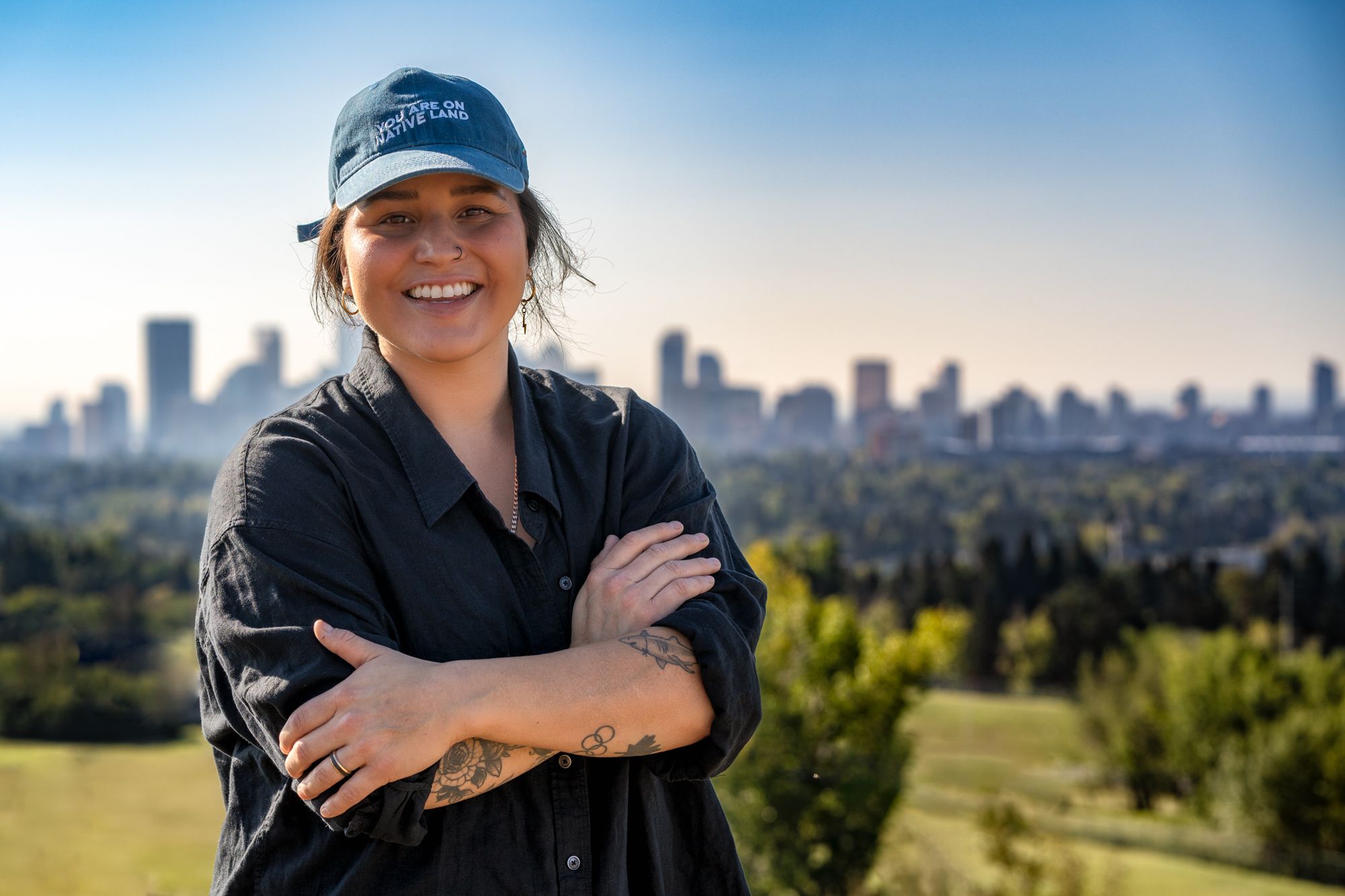
She’s been working with Classroom Champions, a Calgary-based organization that brings world-class athletes into classrooms to help kids learn everything from goal-setting and leadership to community involvement and handling adversity.
“It’s so fulfilling, and it’s awesome to hear their stories. Some kids are shy and not going to speak up, but using my personal stories to relate … I talk about racism or facing getting bullied, and they start to listen more. One little girl said, ‘Oh, you look like me,’ and it made me smile. It made my heart warm.”
Now, she’s bringing it back to the ice, too. Just a couple weeks ago, she announced a new program she launched with Brady Keeper, an “ol’ pal” and professional hockey player also from Manitoba.
It’s called B2 Hockey, and it’s everything — a safe space — that that little girl from Mallard wanted and needed: “An Indigenous program that focuses on the importance of mental health & healthy living through sport.”